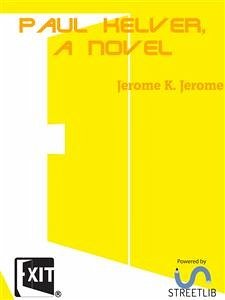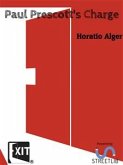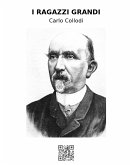PROLOGUE.
IN WHICH THE AUTHOR SEEKS TO CAST THE RESPONSIBILITY OF THIS STORY UPON ANOTHER.
At the corner of a long, straight, brick-built street in the far East End of London—one of those lifeless streets, made of two drab walls upon which the level lines, formed by the precisely even window-sills and doorsteps, stretch in weary perspective from end to end, suggesting petrified diagrams proving dead problems—stands a house that ever draws me to it; so that often, when least conscious of my footsteps, I awake to find myself hurrying through noisy, crowded thoroughfares, where flaring naphtha lamps illumine fierce, patient, leaden-coloured faces; through dim-lit, empty streets, where monstrous shadows come and go upon the close-drawn blinds; through narrow, noisome streets, where the gutters swarm with children, and each ever-open doorway vomits riot; past reeking corners, and across waste places, till at last I reach the dreary goal of my memory-driven desire, and, coming to a halt beside the broken railings, find rest.
The house, larger than its fellows, built when the street was still a country lane, edging the marshes, strikes a strange note of individuality amid the surrounding harmony of hideousness. It is encompassed on two sides by what was once a garden, though now but a barren patch of stones and dust where clothes—it is odd any one should have thought of washing—hang in perpetuity; while about the door continue the remnants of a porch, which the stucco falling has left exposed in all its naked insincerity.
Occasionally I drift hitherward in the day time, when slatternly women gossip round the area gates, and the silence is broken by the hoarse, wailing cry of "Coals—any coals—three and sixpence a sack—co-o-o-als!" chanted in a tone that absence of response has stamped with chronic melancholy; but then the street knows me not, and my old friend of the corner, ashamed of its shabbiness in the unpitying sunlight, turns its face away, and will not see me as I pass.
IN WHICH THE AUTHOR SEEKS TO CAST THE RESPONSIBILITY OF THIS STORY UPON ANOTHER.
At the corner of a long, straight, brick-built street in the far East End of London—one of those lifeless streets, made of two drab walls upon which the level lines, formed by the precisely even window-sills and doorsteps, stretch in weary perspective from end to end, suggesting petrified diagrams proving dead problems—stands a house that ever draws me to it; so that often, when least conscious of my footsteps, I awake to find myself hurrying through noisy, crowded thoroughfares, where flaring naphtha lamps illumine fierce, patient, leaden-coloured faces; through dim-lit, empty streets, where monstrous shadows come and go upon the close-drawn blinds; through narrow, noisome streets, where the gutters swarm with children, and each ever-open doorway vomits riot; past reeking corners, and across waste places, till at last I reach the dreary goal of my memory-driven desire, and, coming to a halt beside the broken railings, find rest.
The house, larger than its fellows, built when the street was still a country lane, edging the marshes, strikes a strange note of individuality amid the surrounding harmony of hideousness. It is encompassed on two sides by what was once a garden, though now but a barren patch of stones and dust where clothes—it is odd any one should have thought of washing—hang in perpetuity; while about the door continue the remnants of a porch, which the stucco falling has left exposed in all its naked insincerity.
Occasionally I drift hitherward in the day time, when slatternly women gossip round the area gates, and the silence is broken by the hoarse, wailing cry of "Coals—any coals—three and sixpence a sack—co-o-o-als!" chanted in a tone that absence of response has stamped with chronic melancholy; but then the street knows me not, and my old friend of the corner, ashamed of its shabbiness in the unpitying sunlight, turns its face away, and will not see me as I pass.









